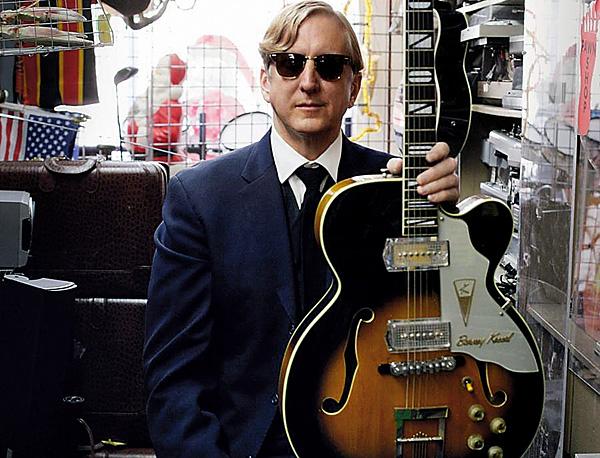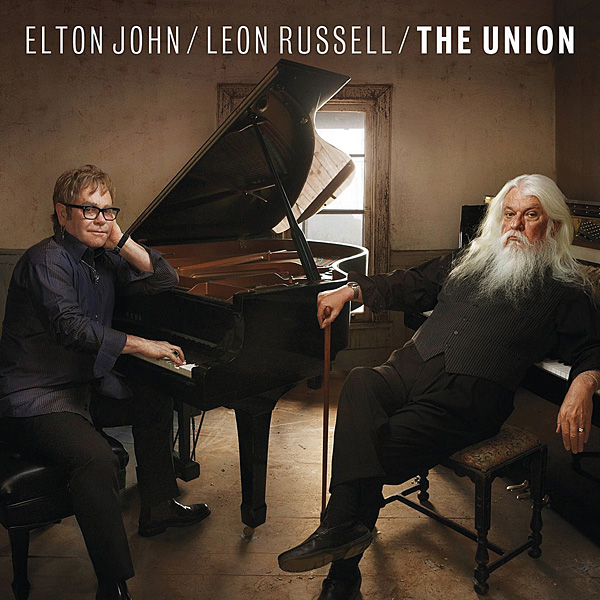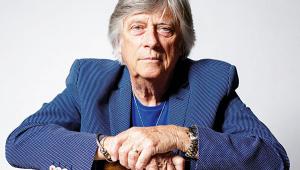T Bone Burnett

Is nostalgia stopping our culture's ability to surge forward, or are we nostalgic precisely because our culture has stopped moving forward so we inevitably look back to more momentous and dynamic times?'
That's a quote from Retromania, a book in which critic Simon Reynolds worries that, because of Youtube and Apple and the iPod and all that, we spend way too much time grooving to The Rolling Stones when we ought to be feasting our ears on RZA. Or something.
Anyway, whether all music being available in the perpetual now is a good thing or not, the archduke of sonic shabby chic would have to be T Bone Burnett, a bloke who's made a small fortune reanimating faded legends for a hip, modern market while endowing wannabe legends with enough ancient gravitas to connect with the connoisseurs.
Lost Magic
With this guy at the controls, it's hard to figure out if what you're listening to is new/old or old/new, and that, of course, is precisely the point. There's an implied standard here, a methodology that points to the recovery of lost magic and a rebuttal of what passes for modern.
Before we trace the roots of his obsession, here's an example of the T Bone philosophy: 'I don't allow any synthetic surfaces anywhere around (in the studio). I don't like modern guitars because they're laminated. If you get an old-time guitar from the '20s, '30s, '40s, '50s or even '60s – you can scrape the lacquer off.
'The new guitars are laminated, so you're already in a plastic age. You're already in an age of controlled sound, rather than an age of raw, free sound. And that's everything. You can take a plastic (drum) head and process it for nine million years and it will never sound as good as if you had just gotten a calfskin head and hit it once.'
Did I say obsession? I meant puritanical evangelicism!
T Bone Burnett was born Joseph Henry Burnett III in 1948. By the time he was 17 and at college in Fort Worth, Texas, he was running his own studio, recording local bands, and visiting performers who would arrive late at night, still buzzing from their show, eager to continue playing. 'These country musicians would drink a lot of whiskey, take a lot of speed, and want to stay up all night,' he recalled. 'They'd need a place to do it, so they'd end up at my studio.'

Strictly Ballroom
T attended all the gigs he could, especially the ones at the Skyliner Ballroom: 'It was the most beautiful sounding room. The music I heard in that room had a profound effect on me. And years later, a friend brought over a recording we had done in '65 or '67. We put it on and it sounds exactly like what I'm doing today.
'It started me thinking. I remembered that Ike and Tina Turner had played a show (there) in the mid '60s. They had recorded it and I wondered if I could buy that record. I went online and I got the record and I put it on. It too sounded like everything I've done my whole life and I realised that everything I've been trying to do from the beginning was to recreate this excitement of the sound that I heard from the Skyliner Ballroom from when I was a kid.
'You see, I love recording but I don't usually love recordings. I hardly ever say, "Wow! That's a great recording". I say, "That's an incredible song" or "incredible piece of music". And the times I do feel that it's been a great recording is where I find a real sense of place – that's the most important part of the listening experience: the sense of place... I love the sound of an instrument bouncing off a wall and into a room, when you hear that pure, deep sound.'
Alpha Male
Moving to LA in the mid-1970s, he wound up playing guitar with Bob Dylan on the Rolling Thunder Revue tour, then released his own stuff, solo and via The Alpha Band, until his production talents swallowed up darn near all of his time. The roster includes Los Lobos' breakthrough LP, How Will The Wolf Survive? (1984), Elvis Costello's King Of America (1986), some of Roy Orbison's Mystery Girl (1989), Greg Allman's mighty studio album Low Country Blues (2011), Willie Nelson's Country Music (2010), B B King's One Kind Favor (2008), Elton John's team-up with Leon Russell, Union (2010) and the pairing of Led Zeppelin's Robert Plant with alt country queen Alison Krauss on 2007's Raising Sand which just happened to win five Grammy Awards.



















































